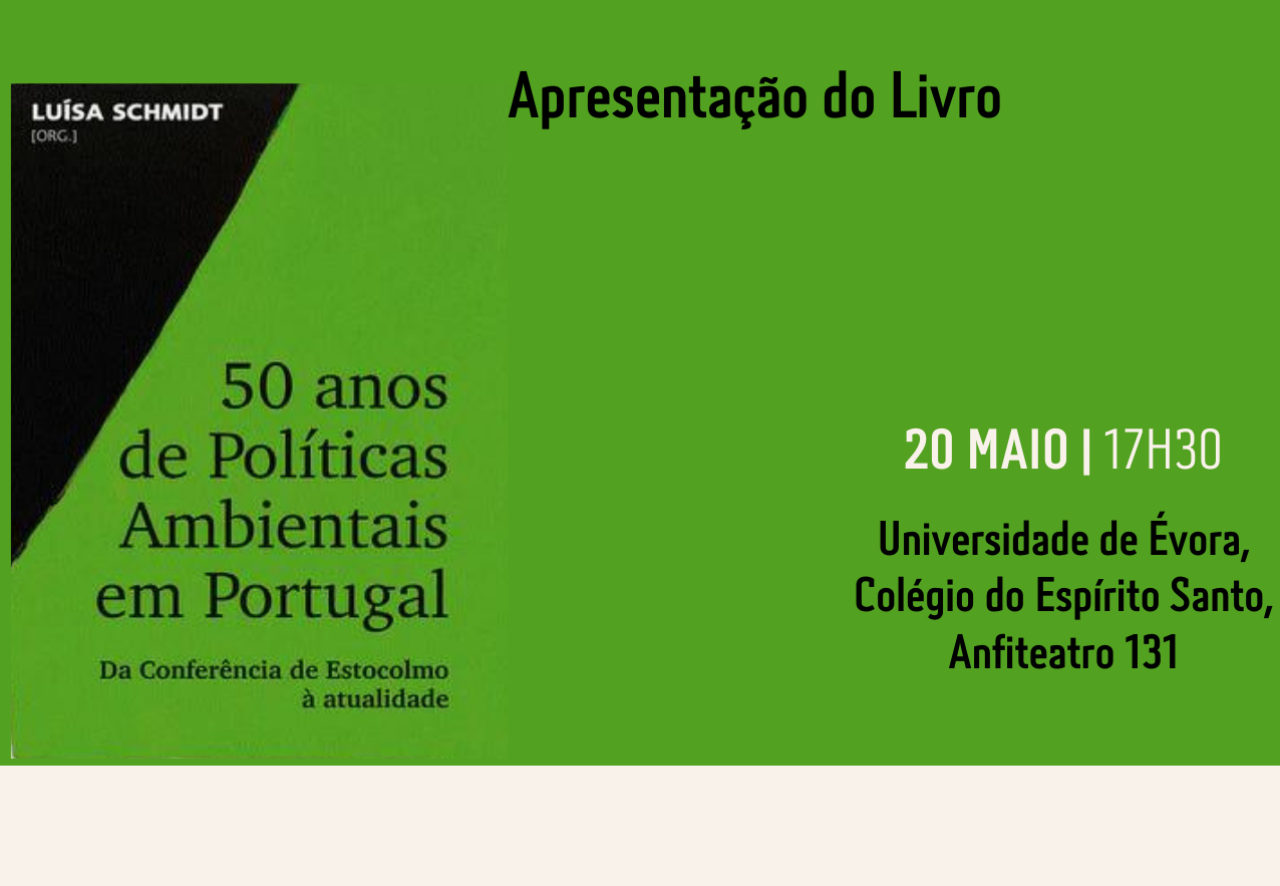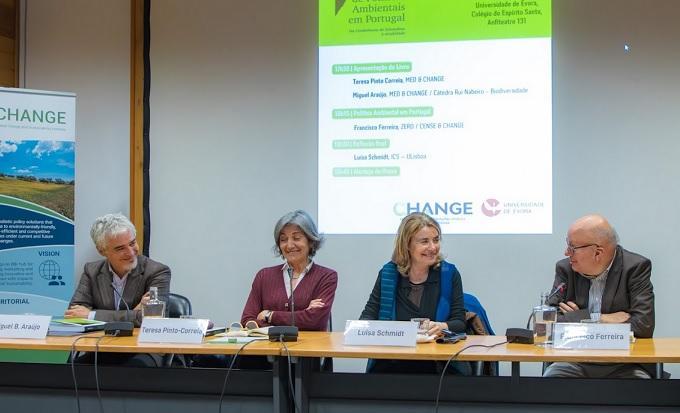
Teresa Pinto Correia, president of CHANGE and researcher at MED, University of Évora (UE), and Miguel Araújo, researcher at MED & CHANGE and head of the Rui Nabeiro Chair of Biodiversity, presented the book "50 Years of Environmental Policies in Portugal – From the Stockholm Conference to the Present Day" by Luísa Schmidt, researcher at the Institute of Social Sciences, University of Lisbon, on May 20th, in a session attended by the author and Francisco Ferreira, President of ZERO – Sustainable Earth System Association.
Opening the session, Teresa Pinto Correia considered the work "extremely important and highly informative" as it narrates the evolution of environmental policy in our country and is "useful for reflecting on topics that have caught my attention since the 1970s”, she emphasized, also highlighting the importance of rural landscape management and conservation, spatial planning, and how all these areas of knowledge should converge. The president of CHANGE regrets that we have not learned from the mistakes of other countries, citing Denmark as an example, among others, and also lamenting the fact that our country "does not think in a coordinated manner," particularly regarding the relationship between forestry and agriculture or spatial planning.
Miguel Araújo, researcher at MED & CHANGE, recalled, among other ideas, the dates, institutions, and national and international historical figures who were pioneers or marked these environmental and spatial planning themes in one way or another, emphasizing the importance of greater environmental awareness.
Francisco Ferreira, President of ZERO, while praising the importance of this work, shares the same opinion, reinforcing the need for our country to have policies adjusted to an increasingly visible reality, especially climate and environmental changes.
Luísa Schmidt, author of the book summarizing 50 years of Environmental Policies in Portugal, emphasizes that environmental policies "are increasingly demanding in terms of technical-scientific rigor" and require a certain level of "political courage" to advance in the right direction, noting both successful and unsuccessful cases that have occurred in our country over the past five decades.
